PM: Govt. had good results under difficult conditions
The Serbian government operated in difficult economic conditions in the past three years but still achieved good results, PM Mirko Cvetković said on Thursday.
Thursday, 07.07.2011.
09:57

The Serbian government operated in difficult economic conditions in the past three years but still achieved good results, PM Mirko Cvetkovic said on Thursday. "The key goals of this government when it was formed were to speed up EU integration, continue the diplomatic battle for Kosovo, fight organized crime and corruption, strengthen the economy and intensify social and government reforms," he said at a government open meeting, marking three years since its formation. PM: Govt. had good results under difficult conditions "We have overcome the biggest obstacles in EU integration. After 20 years, the citizens can now travel without visas. The Stabilization and Association Agreement (SAA) has been ratified. The government completed the European Commission questionnaire in record time," he noted. “Serbia also applied for EU membership and should soon become an EU candidate and get the start date for the accession negotiations,” the prime minister added. “The government has also been focused on institutional reform and organizing the country according to European standards,” Cvetkovic pointed out. "Parliament has adopted 640 laws recommended by this government and harmonized with EU regulations," he stressed. “The government also improved all forms of regional and international cooperation,” the prime minister added. He said that the government had acted in three directions in terms of Kosovo. "Through continual diplomatic efforts, we have stopped the recognition process of the southern Serbian province's illegally declared independence. We have assisted and continue to assist financially the survival of the Serb community in Kosovo. By starting a dialogue with the interim Pristina authorities, we are trying to establish a direct channel for solving concrete problems of the people in our southern province, which is under the protectorate of the international community," he specified. Talking about the Serbian Army (VS), Cvetkovic said it were fully professionalized and a pillar of security in this part of Europe. "We have established military cooperation with over 50 countries, and our soldiers and police officers are successfully taking part in numerous peacekeeping missions," pointed out the prime minister. After half a century, the government started a reform process to revitalize an outdated and inefficient judiciary. According to him, numerous problems in the electoral and political system have been solved, new solutions adopted to advance democratic processes in the country and ensure the highest standard of human rights, and for the first time, Serbia passed environmental protection and spatial planning laws. “After a long pause, the country took key steps forward in cooperation with the Hague Tribunal,” Cvetkovic said. In his speech, the prime minister noted that Serbia "has become a pillar in the fight against crime in the region and plays an important role in the global war on drug trafficking." “EUR 300mn have been seized since the start of implementation of the Law on Seizure and Confiscation of the Proceeds of Crime,” he added. “The government has focused on the economy, managing to prevent an economic downturn and preserve the stability of the banking system and the free market, and implementing special measures to evenly distribute the burden of the crisis,” the prime minister concluded. Today marks the third anniversary since Prime Minister Mirko Cvetkovic’s government was formed. The Serbian government was formed on July 7, 2008 and was reshuffled on March 14, 2010. It now has 17 ministries and 21 members. Cvetkovic assessed earlier that the government had become more efficient following the reshuffle three months ago. He added that considerable progress had been made in many areas, including the start of the professionalization of public company management, reaching of the agreement between the government, employers and trade unions, as well as the recently completed cooperation with the Hague Tribunal. “Our biggest problems were of the economic kind and resulted from the global economic crisis, but the exit from the crisis opens new perspectives,” the prime minister underscored. Cvetkovic announced that the government would recommend that management bodies in public companies should open competition for top positions so that the management professionalization process could be launched. When asked whether recent amendments to the law on local self-government funding would pose an obstacle to the planned budget deficit cuts, he replied that his cabinet would not give up the macroeconomic plan. “We will find ways to save up in other areas, wherever possible, but we will not allow budget deficit to increase either this or next year and we will be rigorous on this point,” Cvetkovic said and recalled that according to plans, budget deficit should total 4.1 percent of the country's GDP this year and 3.2 percent in the year to come. The prime minister underscored that this issue would also be discussed during the talks with the mission of the International Monetary Fund (IMF) in the second half of August, when the Serbian government is supposed to conduct talks on the new precautionary arrangement with the IMF. “The arrangement with the IMF implies that in case of any unforeseen conditions, the financial institution will be prepared to lend EUR 1bn to Serbia,” he pointed out. Commenting on the economic developments in the region and the potential “overflow” of the financial crisis from Greece, Cvetkovic said that competent bodies were implementing measures to prevent the latter from hitting Serbia and that citizens should not worry. Speaking about the current macroeconomic developments, the prime minister said that the inflation rate would continue dropping by the end of the year. “Inflation rate would be a one-digit figure at the end of the year and according to optimistic assessments, it could get on to the target 4.5 percent plus or minus 1.5 percent at the end of 2011,” he explained. When it comes to employment, Cvetkovic underlined that employment had been on the rise over the last three months which changed the trend on the local labor market that had been present ever since the crisis began two years ago. The prime minister said that the statistical data showed unemployment rate was also on the rise, but he also pointed out that he considered the number of employed people much more relevant, because the employed were the ones who were creating the country's GDP. Mirko Cvetkovic (Tanjug)
PM: Govt. had good results under difficult conditions
"We have overcome the biggest obstacles in EU integration. After 20 years, the citizens can now travel without visas. The Stabilization and Association Agreement (SAA) has been ratified. The government completed the European Commission questionnaire in record time," he noted.“Serbia also applied for EU membership and should soon become an EU candidate and get the start date for the accession negotiations,” the prime minister added.
“The government has also been focused on institutional reform and organizing the country according to European standards,” Cvetković pointed out.
"Parliament has adopted 640 laws recommended by this government and harmonized with EU regulations," he stressed.
“The government also improved all forms of regional and international cooperation,” the prime minister added.
He said that the government had acted in three directions in terms of Kosovo.
"Through continual diplomatic efforts, we have stopped the recognition process of the southern Serbian province's illegally declared independence. We have assisted and continue to assist financially the survival of the Serb community in Kosovo. By starting a dialogue with the interim Priština authorities, we are trying to establish a direct channel for solving concrete problems of the people in our southern province, which is under the protectorate of the international community," he specified.
Talking about the Serbian Army (VS), Cvetković said it were fully professionalized and a pillar of security in this part of Europe.
"We have established military cooperation with over 50 countries, and our soldiers and police officers are successfully taking part in numerous peacekeeping missions," pointed out the prime minister.
After half a century, the government started a reform process to revitalize an outdated and inefficient judiciary.
According to him, numerous problems in the electoral and political system have been solved, new solutions adopted to advance democratic processes in the country and ensure the highest standard of human rights, and for the first time, Serbia passed environmental protection and spatial planning laws.
“After a long pause, the country took key steps forward in cooperation with the Hague Tribunal,” Cvetković said.
In his speech, the prime minister noted that Serbia "has become a pillar in the fight against crime in the region and plays an important role in the global war on drug trafficking."
“EUR 300mn have been seized since the start of implementation of the Law on Seizure and Confiscation of the Proceeds of Crime,” he added.
“The government has focused on the economy, managing to prevent an economic downturn and preserve the stability of the banking system and the free market, and implementing special measures to evenly distribute the burden of the crisis,” the prime minister concluded.
Today marks the third anniversary since Prime Minister Mirko Cvetković’s government was formed.
The Serbian government was formed on July 7, 2008 and was reshuffled on March 14, 2010. It now has 17 ministries and 21 members.
Cvetković assessed earlier that the government had become more efficient following the reshuffle three months ago.
He added that considerable progress had been made in many areas, including the start of the professionalization of public company management, reaching of the agreement between the government, employers and trade unions, as well as the recently completed cooperation with the Hague Tribunal.
“Our biggest problems were of the economic kind and resulted from the global economic crisis, but the exit from the crisis opens new perspectives,” the prime minister underscored.
Cvetković announced that the government would recommend that management bodies in public companies should open competition for top positions so that the management professionalization process could be launched.
When asked whether recent amendments to the law on local self-government funding would pose an obstacle to the planned budget deficit cuts, he replied that his cabinet would not give up the macroeconomic plan.
“We will find ways to save up in other areas, wherever possible, but we will not allow budget deficit to increase either this or next year and we will be rigorous on this point,” Cvetković said and recalled that according to plans, budget deficit should total 4.1 percent of the country's GDP this year and 3.2 percent in the year to come.
The prime minister underscored that this issue would also be discussed during the talks with the mission of the International Monetary Fund (IMF) in the second half of August, when the Serbian government is supposed to conduct talks on the new precautionary arrangement with the IMF.
“The arrangement with the IMF implies that in case of any unforeseen conditions, the financial institution will be prepared to lend EUR 1bn to Serbia,” he pointed out.
Commenting on the economic developments in the region and the potential “overflow” of the financial crisis from Greece, Cvetković said that competent bodies were implementing measures to prevent the latter from hitting Serbia and that citizens should not worry.
Speaking about the current macroeconomic developments, the prime minister said that the inflation rate would continue dropping by the end of the year.
“Inflation rate would be a one-digit figure at the end of the year and according to optimistic assessments, it could get on to the target 4.5 percent plus or minus 1.5 percent at the end of 2011,” he explained.
When it comes to employment, Cvetković underlined that employment had been on the rise over the last three months which changed the trend on the local labor market that had been present ever since the crisis began two years ago.
The prime minister said that the statistical data showed unemployment rate was also on the rise, but he also pointed out that he considered the number of employed people much more relevant, because the employed were the ones who were creating the country's GDP.










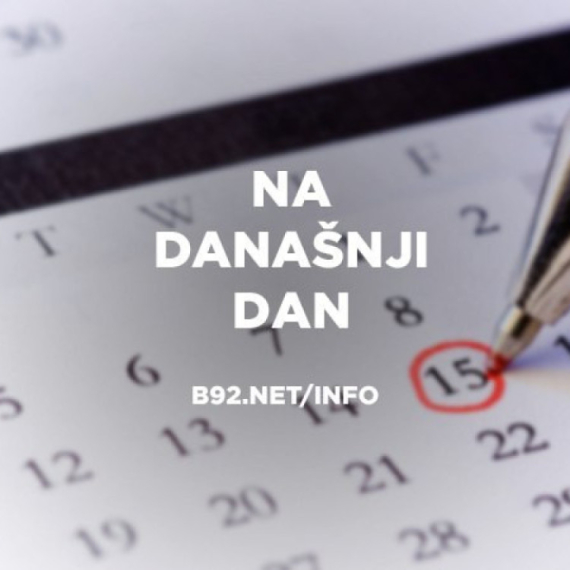
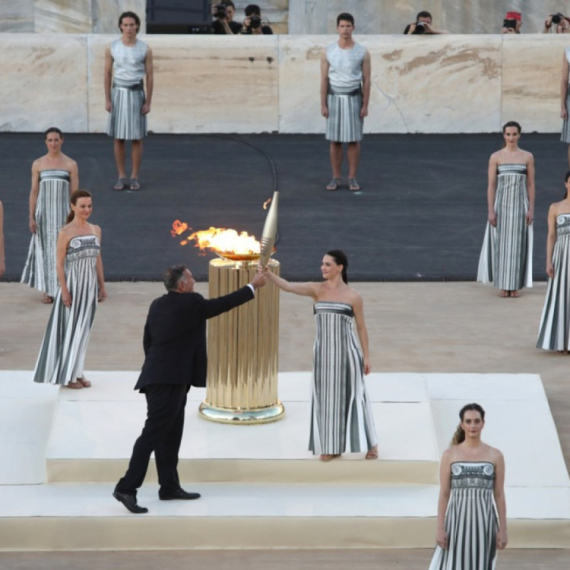
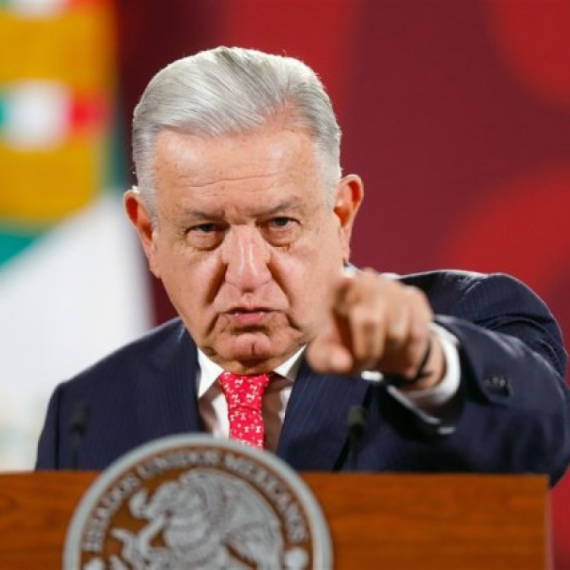



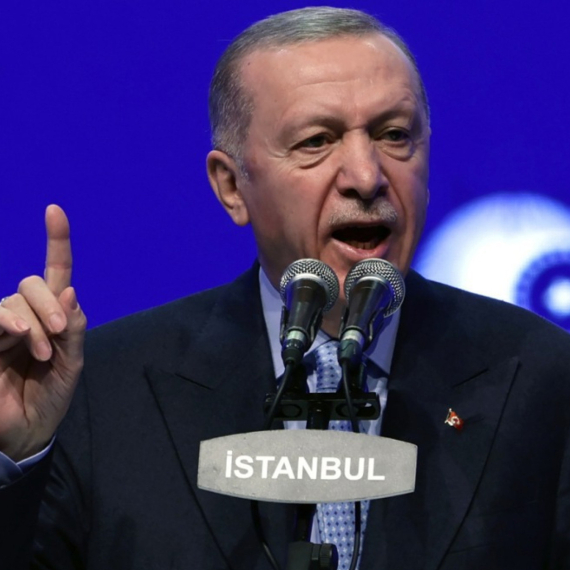


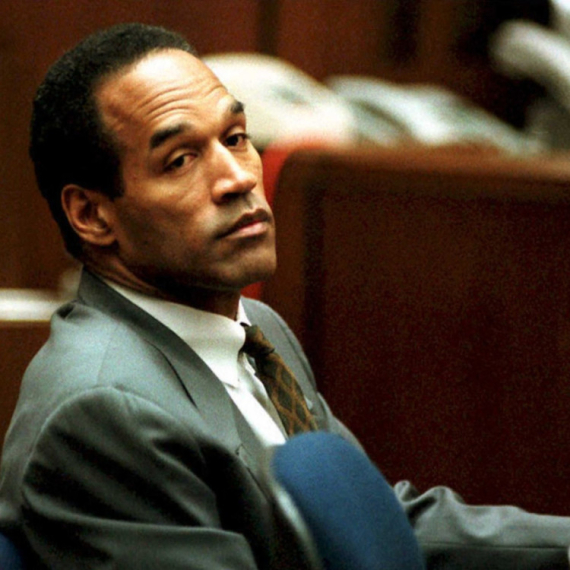






































Komentari 1
Pogledaj komentare